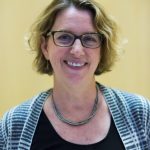
Amanda Anderson is Andrew W. Mellon Professor of Humanities and English and the Director of the Cogut Institute for the Humanities at Brown University. Her work explores the place of critique and argumentation across philosophy and literature (with a special emphasis on liberalism), and the relation between argument and ethos (style, temperament, character). Currently she is working on forms of moral thinking and its relation to literary form. She is the author of Psyche and Ethos: Morality after Psychology (Oxford University Press, 2018), Bleak Liberalism (Chicago, 2016), The Way We Argue Now: A Study in the Cultures of Theory (Princeton, 2006), The Powers of Distance: Cosmopolitanism and the Cultivation of Detachment (Princeton, 2001), and Tainted Souls and Painted Faces: The Rhetoric of Fallenness in Victorian Culture (Cornell, 1993).
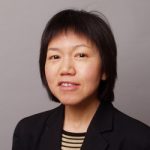
Wai Chee Dimock is William Lampson Professor of English and American Studies at Yale University. Editor of PMLA and a film critic for the Los Angeles Review of Books, she also writes for Critical Inquiry, the Chronicle of Higher Education, the New Yorker, and the New York Times. She was a consultant for “Invitation to World Literature,” a 13-part series produced by WGBH and aired on PBS. Through Other Continents: American Literature Across Deep Time is probably the best known of her books. Her lecture, “Hemingway, Fitzgerald, Faulkner,” is available from Open Yale courses.
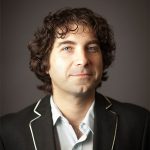
Laurent Dubreuil is a Professor of Comparative Literature, Romance Studies and Cognitive Science at Cornell University, as well as a Distinguished Professor at Tsinghua University (Beijing), where he holds the International Chair of Transcultural Theory. He is the author of ten books, including The Intellective Space: Thinking Beyond Cognition (Minnesota, 2015) and Poetry and Mind: Tractatus Poetico-Philosophicus (Fordham, 2018).

Kevin Hart is the Edwin B. Kyle Professor of Christian Studies in the Department of Religious Studies at the University of Virginia where he also holds courtesy professorships in the Department of English and the Department of French. His most recent scholarly books are Kingdoms of God (Indiana UP) and Poetry and Revelation (Bloomsbury), and his most recent collections of poetry are Wild Track: New and Selected Poems and Barefoot (both Notre Dame UP). He is to give the Gifford Lectures at the University of Glasgow in 2020.

Kimberly Johnson teaches Renaissance literature and creative writing at BYU. Her 2014 monograph _Made Flesh: Sacrament and Poetics in Post-Reformation England_ (U of Pennsylvania Press, 2014) explored the ways in which 17th-century notions of poetic materiality were informed by the theological developments of the Reformation. Her three collections of poetry include, most recently, _Uncommon Prayer_ (Persea, 2014), and she has published book-length translations of Virgil (Penguin Classics, 2009) and Hesiod (Northwestern, 2017). She is the editor, with Jay Hopler, of _Before the Door of God: An Anthology of Devotional Poetry_ (Yale, 2013).
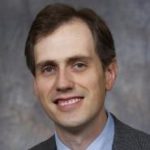
Jason A. Kerr is assistant professor of English at Brigham Young University, where he has been teaching for five years following doctoral work at Boston College. He is currently completing one book project that rethinks consent in terms of vulnerability, drawing on the work of the 17th century English nonconformist Richard Baxter, and beginning another book on the methodology of reading Milton’s De Doctrina Christiana. He is the organizer of the Theology and Humanities research group at the BYU Humanities Center.
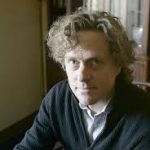
Christopher Newfield, Professor of Literature and American studies at the University of California, Santa Barbara. Much of his research is in Critical University studies, which links his enduring concern with humanities teaching to the study of how higher education continues to be re-shaped by industry and other economic forces. His most recent books on this subject are The Great Mistake: How We Wrecked Public Universities and How We Can Fix Them (2016) and Unmaking the Public University: The Forty Year Assault on the Middle Class (2008).
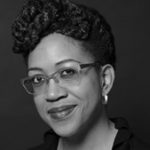
Ifeoma Kiddoe Nwankwo, Ph.D., is Associate Provost for Strategic Initiatives and Partnerships and Associate Professor of English at Vanderbilt University. Her work centers on intercultural and intergenerational relations, particularly as they surface in the literary texts, oral narratives, and popular music of Afro-descendants in the U.S., Caribbean, and Latin America. Her publications include Black Cosmopolitanism; “Bilingualism, Blackness, and Belonging,”; “Race and Representation in the Digital Humanities;” African Routes, Caribbean Roots, Latino Lives; Rhythms of the Afro-Atlantic World (co-edited with Mamadou Diouf); “Living the West Indian Dream” (forthcoming) and “Globally Engaged” Pedagogy, Research, and Creative Practice (co-edited with Jeff Hou and Jan Cohen-Cruz). She is founding director of the Voices from Our America and Wisdom of the Elders public scholarship projects.
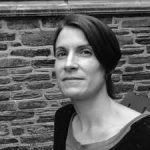
L. A. Paul is an expert on time, causation, and the self whose research focuses on the relationship between our experience of reality and our sense of ourselves. She has published seminal articles on the nature of temporal experience and causation, and she discovered the philosophical concept of transformative experience, which concerns the nature of life-defining experiences and major life choices. Her work blends concepts from metaphysics and cognitive science to discover new ways of understanding the mind and its relationship to the world. She speaks worldwide on how transformative experiences, such as going to war, having a baby, being spiritually reborn, betraying your lover, or emigrating to a new country can transform and change you, and in the process, restructure the nature and meaning of your life. Much of her research explores how this relates to how we make life choices, both big and small, and how we take responsibility for ourselves and others. In 2014 she won a Guggenheim Fellowship for her research on transformative experience. Her 2013 book Causation: A User’s Guide won the annual book prize from the American Philosophical Association. Her 2015 book Transformative Experience has received wide acclaim. It was named by Cass Sunstein of Bloomberg View as one of the year’s five most important books on human bias and blunders and has been translated into Japanese. Her work on causation, the self, and transformative experience has been covered in major media venues such as The New York Times, The Wall Street Journal, The New Yorker, The Guardian, The Times Literary Supplement, Slate, and the LA Times Book Review. She is regularly interviewed by NPR and the BBC about her work on transformative experience and the first person. Her work on transformative experience has also been explored artistically, in The Missing Shade of You, a dance and spoken word performance by the Logos Dance Collective performed in New York City in 2017. She is currently working on a book about self construction, humility, and fear of mental corruption under contract with Farrar, Straus and Giroux. Paul is Professor of Philosophy and affiliate with Cognitive Science at Yale University. She received her PhD from Princeton University in 1999.
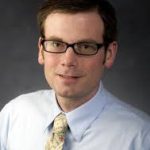
Brian Russell Roberts is Associate Professor of English and Director of American Studies at Brigham Young University. He has published in journals including American Literature, Atlantic Studies, American Literary History, and PMLA. His books include Artistic Ambassadors: Literary and International Representation of the New Negro Era (Virginia 2013) and, with Keith Foulcher, Indonesian Notebook: A Sourcebook on Richard Wright and the Bandung Conference (Duke 2016). He is the editor, with Michelle Stephens, of the collection Archipelagic American Studies (Duke 2017). He received African American Review’s 2009 Darwin T. Turner Award and was a 2015 Fulbright Senior Scholar in Indonesia. He is currently co-editing—with Hester Blum, Mary Eyring, and Iping Liang—a special forum on “Archipelagoes, Oceans, and American Visualities” for Journal of Transnational American Studies. His in-progress book, under contract with Duke, is titled Borderwaters: Amid the Archipelagic States of America.
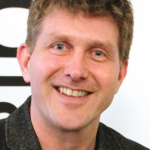
Mads Rosendahl Thomsen is Professor with Special Responsibilities of Comparative Literature at Aarhus University, Denmark. He is the author of Mapping World Literature: International Canonization and Transnational Literature (2008), The New Human in Literature: Posthuman Visions of Changes in Body, Mind and Society (2013), and the editor of several volumes, including World Literature: A Reader (2012), The Posthuman Condition: Ethics, Aesthetics and Politics of Biotechnological Challenges (2012), Danish Literature as World Literature (2017), Literature: An Introduction to Theory and Analysis (2017) and the forthcoming The Bloomsbury Handbook to Posthumanism (2020). He has published in the fields of literary historiography, modernist literature, world literature, canonization, and historical representations of the posthuman. Thomsen has taught at the Institute for World Literature (Harvard, 2013, and Copenhagen, 2017), and he is currently co-director of the research project “Posthuman Aesthetics” (2014-18), director of the Digital Arts Initiative (2017-) and director of the research focus area “Human futures” (2016-19). He is a member of the Academia Europaea (2010-).
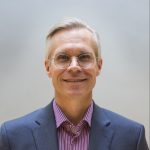
Matthew Wickman earned his PhD at UCLA in 2000 and began working at BYU that fall. His interests range widely from the British (and particularly the Scottish) long eighteenth century and Romanticism to modernism, literary and intellectual history, literary theory, and the interdisciplinary humanities (involving mathematics, law, the sciences, etc.). For three years (2009-2012) he held a joint appointment between BYU and the University of Aberdeen in Scotland, where he was Senior Lecturer of Scottish Literature. He returned full-time to BYU in 2012 and assumed his current position as Founding Director of the BYU Humanities Center.